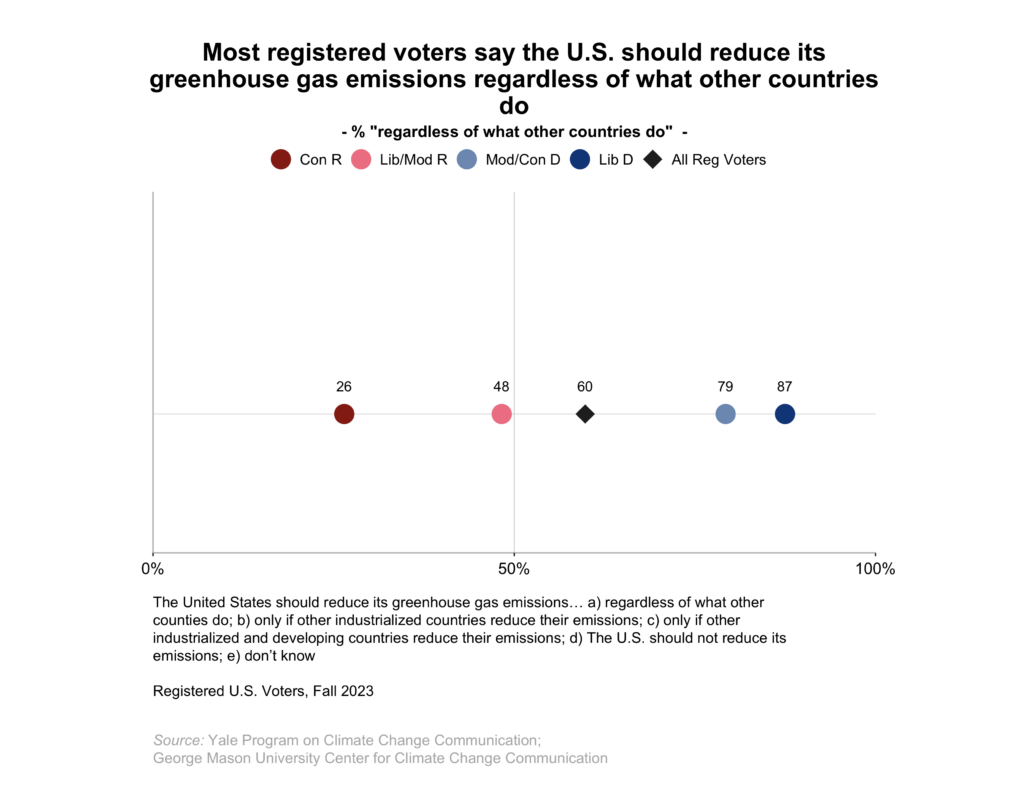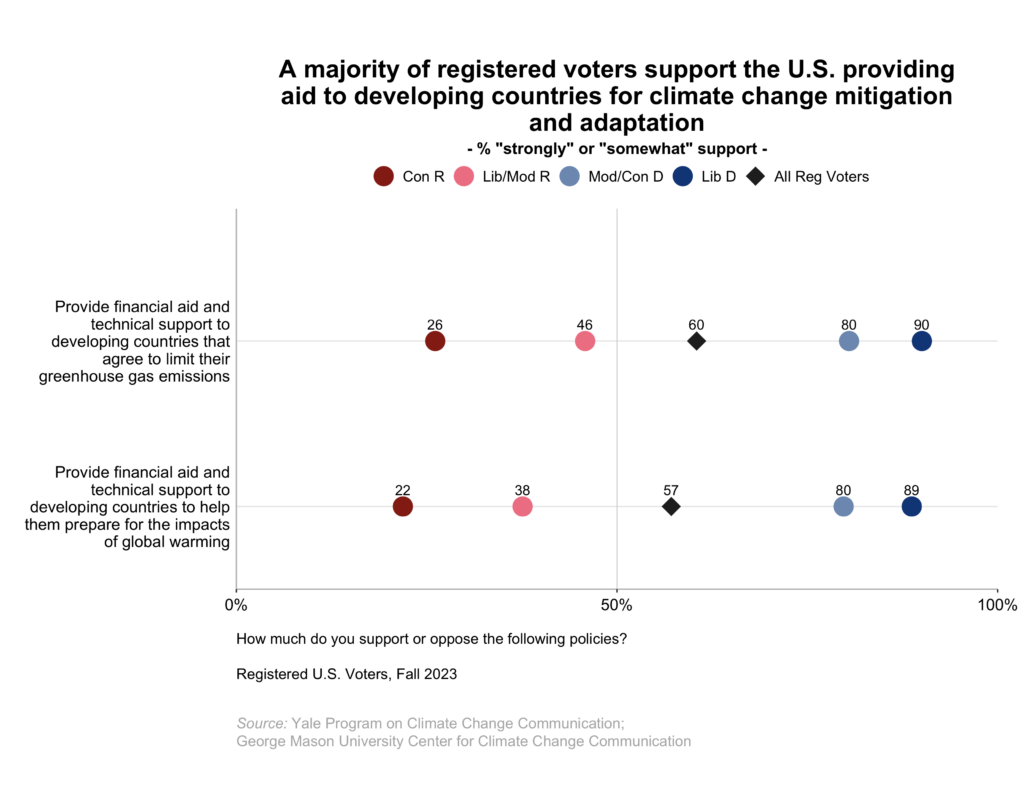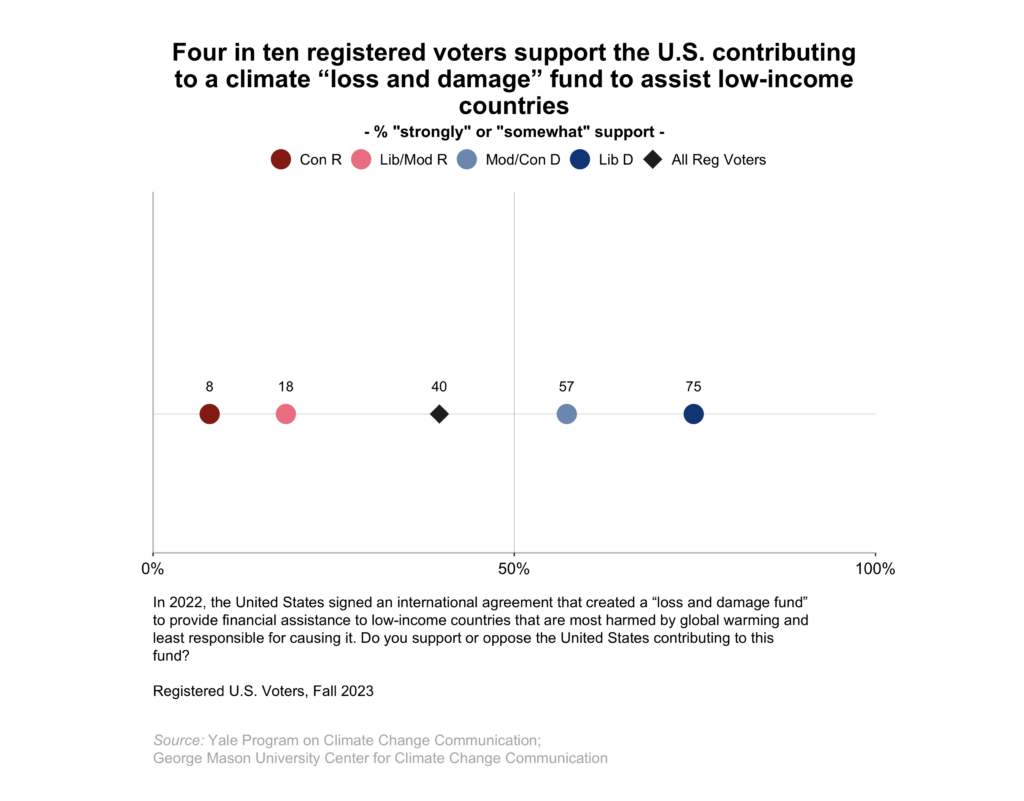Report · Nov 29, 2023
Climate Change in the American Mind: Politics & Policy, Fall 2023
By Anthony Leiserowitz, Edward Maibach, Seth Rosenthal, John Kotcher, Emily Goddard, Jennifer Carman, Marija Verner, Matthew Ballew, Jennifer Marlon, Sanguk Lee, Teresa Myers, Matthew Goldberg, Nicholas Badullovich and Kathryn Thier
Filed under: Policy & Politics
7. Participation of the United States in International Climate Action
7.1. Most registered voters say the U.S. should reduce its greenhouse gas emissions regardless of what other countries do.
A majority of registered voters (60%) think the United States should reduce its greenhouse gas emissions, regardless of what other countries do. Majorities of liberal Democrats (87%) and moderate/conservative Democrats (79%), and about half of liberal/moderate Republicans (48%), but fewer conservative Republicans (26%), take this position.
Only 7% of registered voters (1% of Democrats, 8% of Independents, and 13% of Republicans) say the United States should not reduce its emissions (refer to data tables, p. 56).
7.2. A majority of registered voters support the U.S. providing aid to developing countries for climate change mitigation and adaptation.
Majorities of registered voters support providing financial aid and technical support to developing countries to limit their greenhouse gas emissions (i.e., mitigation, 60%) and to help them prepare for the impacts of global warming (i.e., adaptation, 57%).
Large majorities of liberal Democrats support providing aid for mitigation (90%) and adaptation (89%), as do large majorities of moderate/conservative Democrats (mitigation, 80%; adaptation, 80%). Fewer liberal/moderate Republicans (mitigation, 46%; adaptation, 38%) and conservative Republicans (mitigation, 26%; adaptation, 22%) support these policies.
7.3. Four in ten registered voters support the U.S. contributing to a climate “loss and damage” fund to assist low-income countries.
In 2015, officials from 197 countries (nearly every country in the world) met in Paris at the United Nations Climate Change Conference and negotiated a global agreement to limit global warming. In 2022, as part of subsequent international negotiations, the United States signed an agreement that created a “loss and damage fund” to provide financial assistance to low-income countries that are most harmed by global warming and least responsible for causing it.
Four in ten registered voters (40%) support the U.S. contributing to this fund. This includes majorities of liberal Democrats (75%) and moderate/conservative Democrats (57%), but fewer liberal/moderate Republicans (18%) and conservative Republicans (8%). An additional 26% of registered voters neither support nor oppose the U.S. contributing to this fund (refer to data tables, p. 57).


